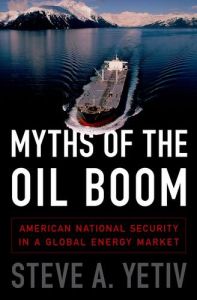International relations professor Steve A. Yetiv delivers an oil policy wonk’s dream: a clear, detailed position paper presenting the factors affecting US energy security and future oil price stability. He loads his book with in-depth data and offers geopolitical scenarios encompassing sovereign countries, the world’s major oil producing cartels and independent national producers. Yetiv makes the powerful argument that the best way to improve America’s future oil price and supply security is to cut its reliance on oil. Richly sourced and featuring an extensive index, this dense work presents a sophisticated understanding of the true state of oil and its discontents. Yetiv’s work isn’t a casual read, but you can get a lot of mileage from it. getAbstract recommends his perceptive overview to energy industry professionals and energy traders, geopolitical experts, policy makers and leaders of nongovernmental organizations.
The Critical Commodity
Oil remains the world’s most important commodity. Oil demand will continue unabated until at least 2040. This matters to the United States because it consumes about 22% of the world’s available supply every day. Oil security has political, defense and economic ramifications. Oil security hinges on stable prices that do not disrupt the economy and on a reliable supply from the Middle East and Russia.
The United States must mitigate threats from terrorists and unstable nations that use oil to cause political unrest or pollution. Oil has become a critical link in discussions of global power, US foreign policy, environmentalism, terrorism, the operations of multinational firms and anti-Americanism. About $2 billion worth of oil trades daily worldwide, making it the most important asset in determining any nation’s balance of payments and trade flows. Petroleum taxes are a chief source of tax revenues for more than 90 nations.
The International Energy Agency (IEA) projects that recent increases in US oil supplies from hydraulic fracturing (“fracking”) and other extraction methods will make America the world’s biggest oil producer – ahead of Saudi...
Steve A. Yetiv, a professor of international relations at Old Dominion University, Virginia, is the author of eight books.









Comment on this summary